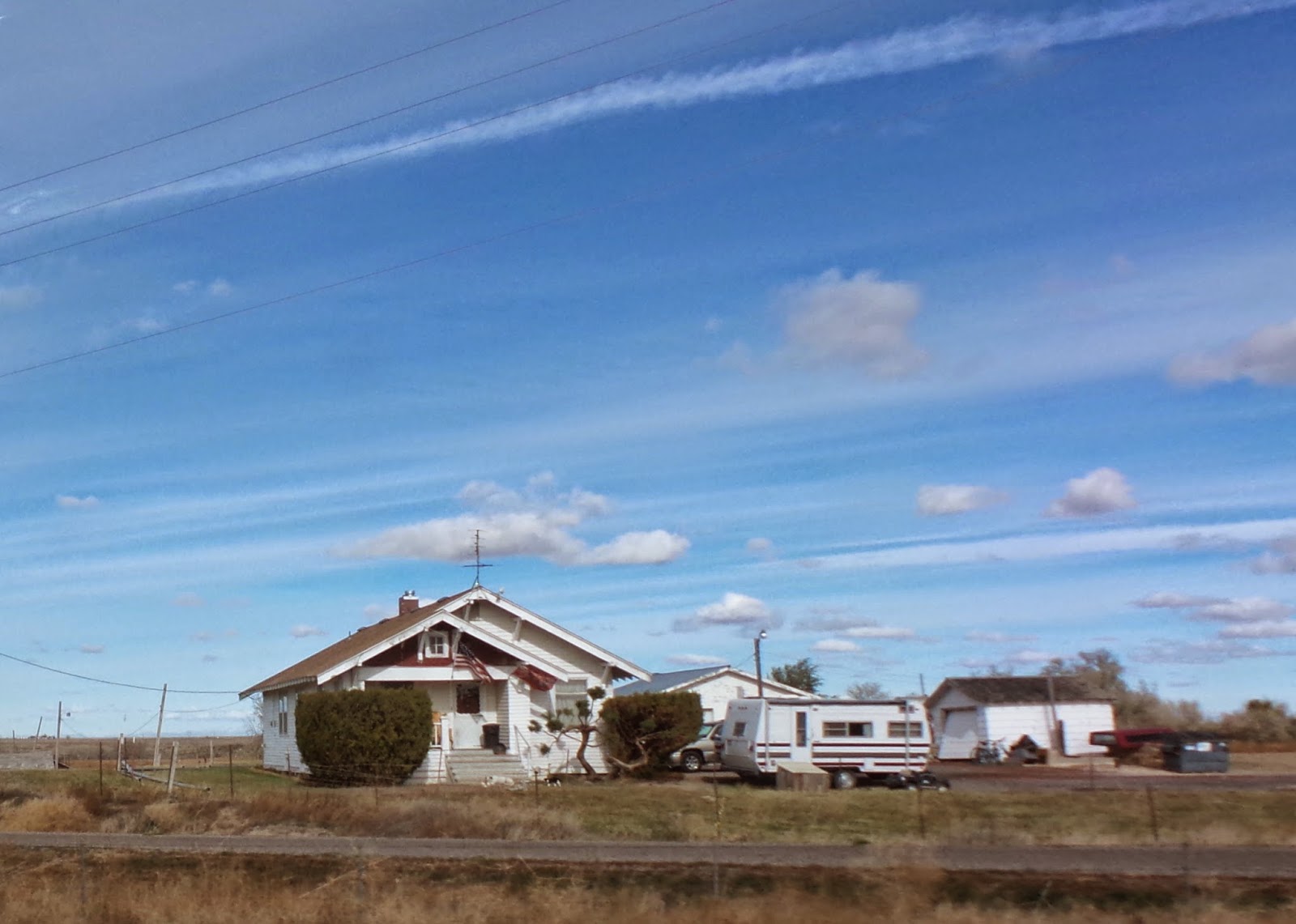This is the time of year when the stiff, sharp, green iris spears appear and lengthen,
when the lawn still really doesn't look like much. Anticipation of blossoming iris,
which is one of the best features of our Idaho yard, grows, too.
Here is one of the blue ones that grow down by the canal.
It reminds S of the ones that grew in Bear Lake Valley when he was a child.
Many of the these were covered over when the work on the canal right of way was done.
Still, there are a few left and I am looking forward to their cheerful brightness!
Summer
After Georg Trakl
A pallid cuckoo calls in a loop
more insistently as afternoon fades.
In garden beds humid air
clings to the stalks of poppies.
Mosquitoes rise from layers
of leaves under grapevines.
A blue shirt sticks to your back
as you climb the ladder.
Thunder rattles a fishing boat's
canopy in the dry dock.
The storm silences crickets
chirruping under the mangroves.
Turbulence has passed.
A candle lights our dark room.
Outside calm, a starless night--
then the flame is extinguished,
pinched between a finger
and thumb. In the eaves, at nest,
swallows rustle. You believe
the swallows glow in the dark.
Light daubs our skin with shapes--
the crushed petals of red poppies.
Robert Adamson
Net Needle, Flood Editions, Chicago, 2015, pages 2-3.
Robert Adamson is a poet that is new to me, I think if I had lived in Australia, I would have known aboout his before this, as he has won many prizes and much recognition there. This poem, moving from outdoors to indoors, is nicely arranged in two-line stanzas. No sentence runs over into the next one; each two lines ends with a period. I think it is a fine blend of the natural world, the work world and the interpersonal world. And when I finish here, I will go into the other room looking for the Trakl.
























